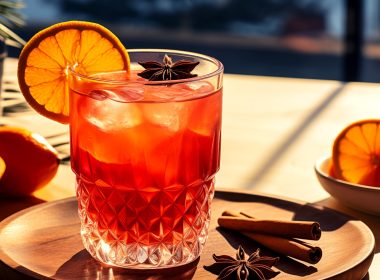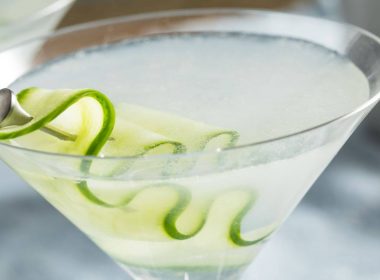Is There Really A Substitute for Your Favourite Vermouth?
Jump to:
- All about Cinzano Vermouth
- Cinzano Vermouth Rosso
- Cinzano Vermouth Bianco
- Cinzano Vermouth Extra Dry
- 1757 Vermouth di Torino Rosso
- 1757 Vermouth Extra Dry
- Is there a substitute for Vermouth?
- Can you substitute dry vermouth for sweet vermouth?
- Can you substitute vermouth for white wine?
- Can you substitute sherry for vermouth in a recipe?
- Best dry vermouth substitute
- Best sweet vermouth substitute
Vermouth, a time-honored fortified wine flavoured with botanicals, is a star player in the world of modern-day mixology. Its distinctive herbal, aromatic profile has made it an essential component in many classic cocktails over the centuries and still delights adventurous palates to this day.
Here’s a look at the iconic Cinzano Vermouth range, and a few suggestions on vermouth substitutes for those tricky times when you need it for a recipe but find that you have run out.
All about Cinzano Vermouth
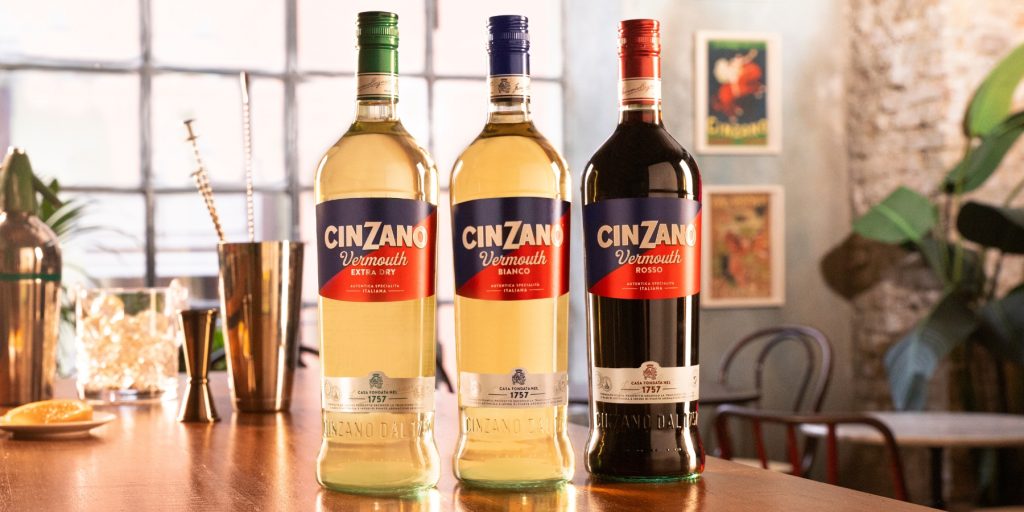
Cinzano, a name synonymous with quality and tradition, offers an inspired spectrum of vermouths that cater to diverse tastes and preferences. Let’s take a closer look at some of their distinguished offerings:
Cinzano Vermouth Rosso
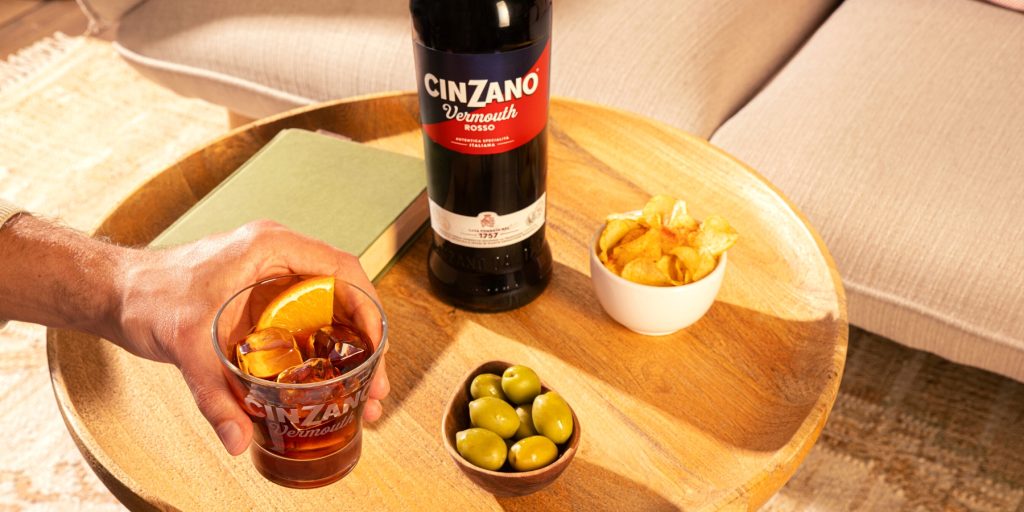
Cinzano Vermouth Rosso stands as the vermouth that sparked a legacy, intertwining richness and aromatic allure. This exceptional blend melds the finest red vermouth ingredients with a curated selection of herbs and spices, resulting in a flavour profile that has enchanted palates for centuries.
- Colour: A captivating amber, suggesting richness.
- Nose: Aromatic embrace of vanilla, black cherry, and a subtle hint of creamy caramel.
- Taste: A gentle sweetness evolves into layers of spices and intricate bitterness, concluding with a botanical flourish dominated by distinctive artemisia notes.
This vermouth is a perfect companion for classic cocktails like the Negroni or the iconic Manhattan.
Take a deep dive: Everything You Need to Know About Vermouth
Cinzano Vermouth Bianco
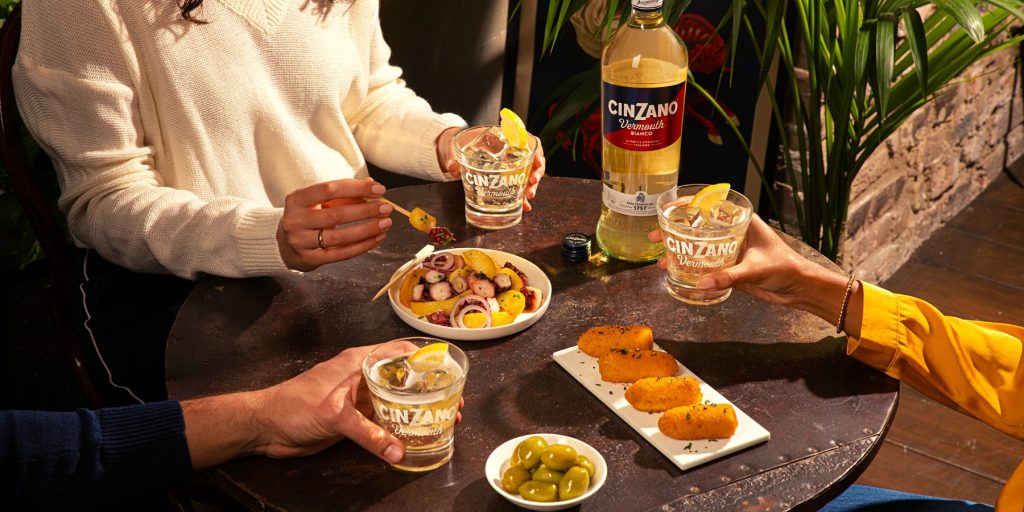
Cinzano Bianco captivates with its fragrant, full-bodied aroma, offering a delightful experience for the senses. This sweet and versatile vermouth introduces a spicy and floral taste, infusing vibrancy into any beverage.
- Colour: A gentle light yellow, setting the stage for its nuanced character.
- Nose: Delicate hints of white peach, flower blossom, and freshly spiced marjoram greet the senses, followed by lingering notes of fresh thyme.
- Taste: The sweet flavour profile unfolds with subtle hints of fruit, vanilla bean, and cinnamon, culminating in a bittersweet and persistent finish that lingers on the palate.
Enjoy it in drinks like the French Rose and let the exquisite taste of Cinzano Vermouth Bianco elevate your mixology experience.
Read next: Around the World in a Cocktail Shaker
Cinzano Vermouth Extra Dry
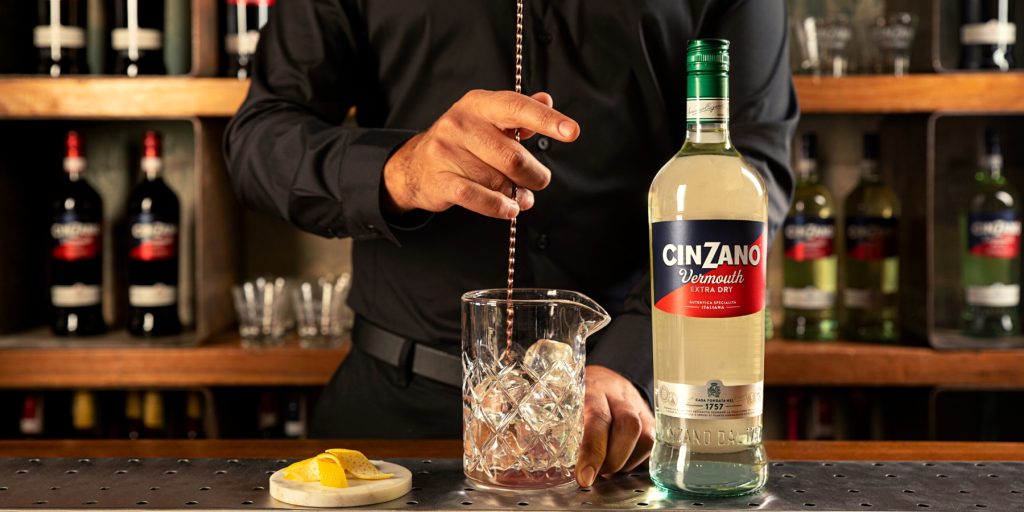
Cinzano Vermouth Extra Dry is a masterpiece of balance, showcasing the art of creating a dry vermouth with finesse. This vermouth captivates the senses with its unique characteristics and a delightful interplay of aromas and flavours.
- Colour: Its pale-yellow hue, offset with gentle green hues, sets the stage for the crisp and refreshing experience that follows.
- Nose: The aroma is a complex fusion of fresh mint, sage, and oregano, accompanied by a subtle hint of spice and the underlying notes of wine.
- Taste: With every sip, Cinzano Extra Dry unfolds a pleasant and dry herbal flavour. The combination of mint, sage, and oregano dances on the palate, creating a crisp sensation that lingers gently. The finish is mildly bitter, completing the experience with a touch of sophistication.
Cinzano Vermouth Extra Dry is the ideal choice for timeless clinkers like the Classic Vodka Martini, when you need an exceptionally strong backbone to support a captivating drink profile.
Learn more: 22 Types of Martinis You Should Know
1757 Vermouth di Torino Rosso

1757 Vermouth di Torino G.I. Rosso is a celebration of flavours, embodying a distinctively sweet, aromatic, and rich taste that effortlessly strikes a perfect balance. Crafted in adherence to the time-honored Piedmontese custom, this vermouth is a testament to tradition and meticulous artistry.
- Colour: Its reddish-brown hue, adorned with amber reflections, sets the stage for the sensory journey that awaits.
- Nose: The aroma is a harmonious interplay of complexity. Spices, wood, and root notes unfold, inviting you into a world where vanilla, dried fruits, and the delicate floral essence of wormwood create a captivating olfactory experience.
- Taste: With each sip, 1757 Vermouth di Torino G.I. Rosso unveils a delightful combination of dried fig, spices, and wood. The journey is rounded off with subtle hints of vanilla, leaving you with a long and bittersweet finish that resonates with the warmth of amber resin.
Savour it in a Boulevardier or a Rob Roy and experience the timeless allure of 1757 Vermouth di Torino Rosso.
Discover Next: The Difference Between Rye Whiskey and Bourbon
1757 Vermouth Extra Dry

Experience the captivating essence of Vermouth di Torino G.I. Extra Dry as it transports your palate to the sun-soaked landscapes of the Mediterranean maquis. This unique blend combines a refreshing symphony of delicate herbs such as mint, sage, oregano, and thyme, creating a sensory journey that pays homage to the rich cultural heritage of Piedmont.
- Colour: Pale crystal yellow with enchanting greenish reflections.
- Nose: A delicate interplay of Mediterranean herbs (mint, sage, oregano, thyme) and floral notes, gracefully rounded by a spiced finish with hints of cloves.
- Taste: Invigoratingly fresh and dry, the palate is treated to a harmonious blend of wine notes and a Mediterranean herb bouquet. The journey culminates in a long and pleasantly bitter finish, accentuated by the final touch of wormwood bitterness.
Is there a substitute for Vermouth?
Vermouth’s unique blend of flavours makes it a challenging spirit to replace. The delicate balance of herbs, spices, and wine is not easily replicated. While substituting vermouth should always be a last resort, sometimes necessity calls for alternatives.
Can you substitute dry vermouth for sweet vermouth?
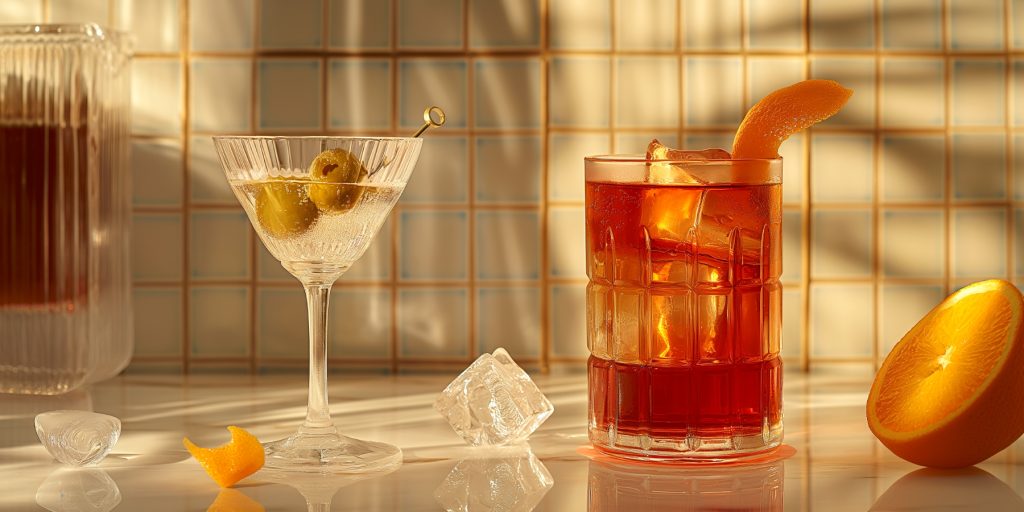
In situations where you find yourself without either sweet vermouth or dry vermouth, it may be tempting to use what you have on hand. However, it’s important to note that substituting one kind for the other can significantly alter the flavour of your cocktail.
Dry vermouth, being lighter and less sweet, imparts a distinct character to your drink. If your recipe specifically calls for sweet vermouth, using dry vermouth may result in a cocktail with a drier and less sweet profile. Likewise, if your recipe calls for dry vermouth, substituting sweet vermouth will introduce a sweeter element that might not align with the intended flavour balance.
While it’s a viable solution in a pinch, the substitution is not a simple exchange. The choice between dry and sweet vermouth should be made based on the desired taste profile of your cocktail and a consideration of how the substitution may impact the overall flavour experience.
Can you substitute vermouth for white wine?

White wine, while a viable alternative to vermouth in a pinch, comes with a few caveats. While it shares some similarities with vermouth, it lacks the distinct complexity and herbal notes that define the latter. If you decide to substitute white wine for vermouth, it’s essential to be aware that the resulting flavour will be milder and less nuanced.
Vermouth contributes a unique blend of herbs, spices, and botanicals, which white wine doesn’t possess in the same concentrated form. The absence of these intricate elements might lead to a less layered and more straightforward taste profile in your cocktail. However, if you find yourself without vermouth and white wine is your only option, the substitution can still work if you’re prepared for the adjusted flavour dynamics in your drink.
Can you substitute sherry for vermouth in a recipe?

Sherry can serve as a potential substitute for vermouth in certain situations, but it’s important to note the distinctions between the two. While sherry brings its own unique set of flavours to the table, it differs significantly from vermouth, particularly in terms of herbal complexity.
If you choose to substitute sherry for vermouth in a recipe, be prepared for a flavour profile that leans more towards the nutty and fortified characteristics of sherry. The herbal and aromatic complexity that vermouth imparts may not be seamlessly replicated by sherry. While the substitution can work in some instances, it’s essential to acknowledge that your cocktail will showcase the distinctive qualities of sherry, potentially altering the intended taste experience.
In short, using sherry as a substitute for vermouth can be a creative choice, but it’s crucial to understand the flavour differences and adjust accordingly based on your preferences and the desired outcome of your drink.
Best dry vermouth substitute
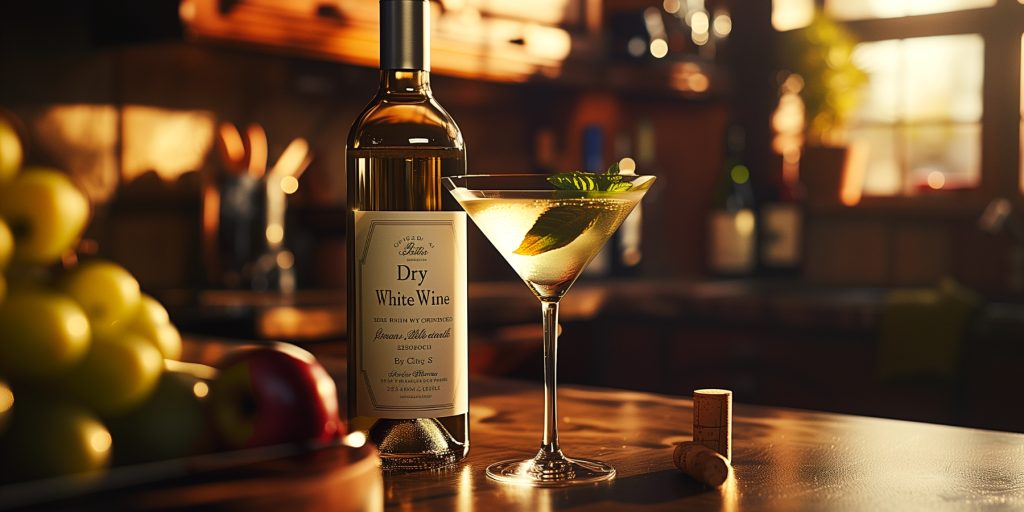
When push comes to shove, and vermouth is unavailable, dry white wine emerges as the best potential substitute. However, it’s crucial to acknowledge that this is a last resort and won’t provide the same depth of flavour.
Here are a few guidelines to help you choose the best white wine:
- Choose a dry white wine to minimise sweetness.
- Consider the specific wine variety to complement the cocktail’s flavour.
- Adjust the quantity cautiously, as white wine lacks the concentrated flavours of vermouth.
Best sweet vermouth substitute
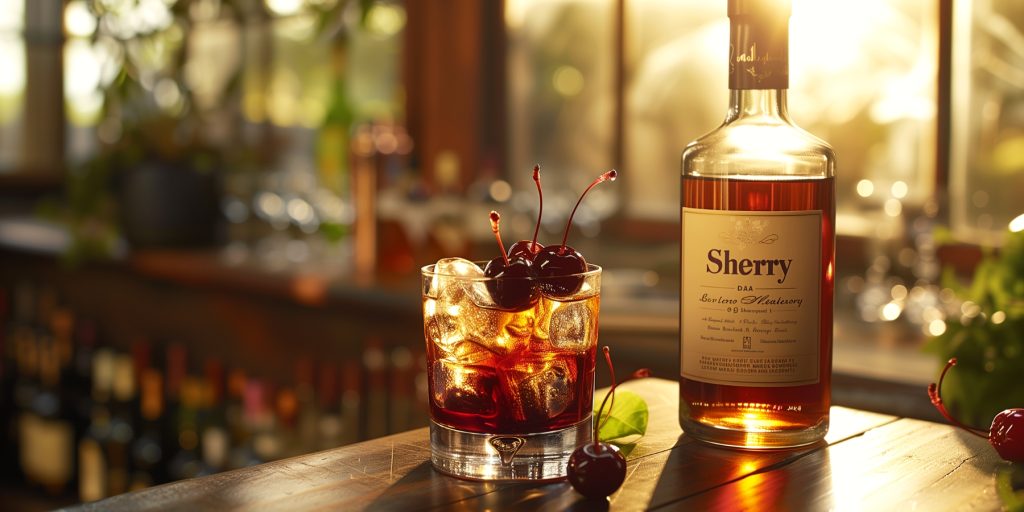
For those moments when sweet vermouth is elusive, dessert and sweet wines can step in. However, it’s essential to manage expectations, as the substitution will not fully replicate the unique qualities of vermouth.
Here are a few guidelines to help you choose the best dessert or sweet wine:
- Opt for a dessert wine with a richness that complements the cocktail.
- Adjust the sweetness level by adding a touch of simple syrup if needed.
- Be mindful of the potential flavour differences and adjust accordingly.
There you have it cocktail fans, a quick look at all of Cinzano’s popular vermouths, as well as a few substitution insights for those moments when you find yourself with a somewhat bare liquor cabinet. Sign up to our newsletter for more helpful tips like these.




